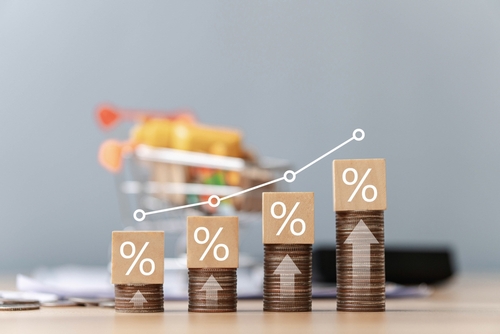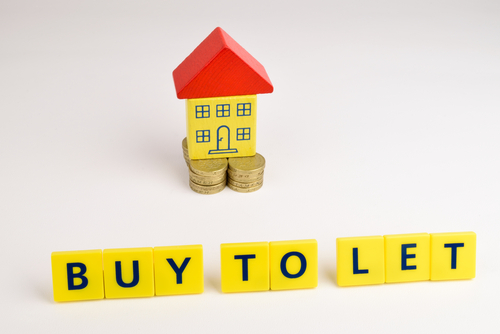• 6.5 million households (25%) owe money to their energy supplier [1] – average debt is £126 [1], 11 per cent higher than last year [2]
• Over half (52%) of those in debt to their energy supplier say they owe more now than they did this time last year [3]
• Last year energy prices went up by 42% or £381[4], but almost a third of households (30%) have only just had their direct debits increased [5]
• Average household energy direct debit is now £85 per month – average increase was £22 or 36%[6], but almost one in ten (9%) saw their direct debit increase by over £50 a month [6]
• Increases to direct debits prompted a third of people (33%) to contact their supplier [7] - 4% of people felt forced to cancel direct debits as a result [8].
New research from uSwitch.com, the independent price comparison and switching service, reveals that 6.5 million households are in debt to energy suppliers[1]. The average amount owed has increased by 11% from £114 in 2008 to £126 today [2] - enough to prevent many from being able to switch to a better energy deal. It also means that, in total, UK households owe an estimated £820 million to energy companies [1].
Over half (52%) of those in debt to their energy supplier owe more than they did this time last year[3]. And it’s likely to get worse. 2008 saw energy price hikes of 42% or £381[4], however many customers have only just started to see these increases reflected in their monthly direct debit payments. Just under three quarters of households (74%) pay for their energy bills by direct debit, but almost a third (30%)[5] have only had their direct debit increased in the past three months. As a result, many are now playing catch up to make up for months of underpaying.
The delay is due to suppliers having to review accounts before amending direct debits. They cannot increase direct debits automatically because not everyone will need their monthly payments to go up[9]. In fact, following last year’s price increases and subsequent account reviews, 4% of households had their direct debits decreased[5]. However, 68% of direct debit customers saw their monthly payments increase[5] and, confusingly, some may have seen increases even as suppliers were announcing price cuts.
The average energy direct debit is now £85 per month[6]. Suppliers increased direct debits by £22 a month on average to compensate for last year’s price increases. However, almost one in ten households (9%) saw their direct debits increase by more than £50 a month. At the least, this adds up to an eye watering £600 a year extra they have to find[6].
Not surprisingly then, when advised of increases to direct debits a third of people (33%) felt compelled to contact their supplier[7]. Worryingly, 4% cancelled their direct debit[8], which means that the cost of their household energy could increase as they will be losing out on valuable discounts. A further 4% are thinking of moving onto a prepayment meter to try to control their energy bills[10] – again they risk increasing the cost of their energy as a result.
Ann Robinson, Director of Consumer Policy at uSwitch.com, says: “Despite energy prices now starting to fall, almost a third of direct debit households have only started to feel the impact of last year’s price hikes within the last few months. Not only has this raised concerns over affordability, but it also suggests that energy debt is likely to continue to grow as so many households will be playing catch up.
“The danger is that consumers will cancel their direct debit because they cannot afford the increases, but will then end up paying more for their energy because they will lose valuable direct debit discounts. Owing money to an energy supplier can also prevent people from being able to reduce energy bills by moving to a lower cost energy deal. Households cannot afford to have either of these options closed to them in today’s economic environment.
“Consumers have to start taking a more active role in managing their energy bills. If you are going into the red and can afford to increase your payments, contact your supplier. Make sure you are paying the lowest possible price for your energy by shopping around, cut down on the amount of energy you use and make sure you or your supplier is taking regular meter readings. Relying on estimated bills can be a shortcut to debt.”
Customers who need to discuss direct debits should contact their supplier on:
British Gas: 0800 048 0101
EDF Energy: 0800 096 9000
E.ON: 0845 302 4313
npower: 0845 790 6050
Scottish and Southern Energy: 0800 0525252 (SWALEC) or 08457 444555 (Southern Electric and Scottish Hydro Electric)
ScottishPower: 0845 2 700 700.
For more information visit www.uSwitch.com or call 0800 093 06 07
Notes to editors
Research referred to in the notes below was conducted online by YouGov Plc on behalf of uSwitch.com. Fieldwork took place 28th January – 2nd February, 2009 among 2,383 people with decision making involvement with energy suppliers. Data is weighted.
- According to the research, 9% of respondents were in debt/arrears by up to £50, 6% between £51 and £100, 6% between £101 and £200, 2% between £201 and £300, 1% between £301 to £500 and 1% more than £500. This has been taken as 25% of households in debt which, on the basis of 26 million households, equals 6.5 million households or energy customers. The average amount respondents were in debt was £125.86, which is a total of £820 million across the 6.5 million households in debt.
- According to research conducted by YouGov Plc on behalf of uSwitch.com between 20th – 25th March 2008, the mean amount owed by consumers in debt/arrears was £113.58. The average debt today is £125.86, an increase of 10.8%.
- All respondents who were in debt/arrears on their last energy bill were asked to compare their debt/arrears to a year ago - 52% reported that their debt is now higher.
- According to uSwitch.com - based on a medium user customer using 3,300 kWh of electricity and 20,500 kWh of gas, on a standard Dual Fuel plan, paying on receipt of bill with bill sizes averaged across all six suppliers and regions.
- According to the research, 74% of respondents pay for their energy bills by direct debit. When asked the question: “When was your direct debit increased/did your supplier try to increase your direct debit (to take account of last year’s price rises?), 30% of respondents answered: “within the last 3 months”, 4% answered “my monthly direct debit payment has been reduced”. 68% made up of: 30% who saw increases within the last 3 months, 23% within the last 6 months and 15% within the last 12 months.
- According to the research, the mean amount paid by direct debit each month is £84.90 and the mean amount suppliers increased monthly direct debits by was £22.41. However, 3% saw increases of £50.01 to £55, 1% saw increases of £55.01 to £60 and 5% saw increases of more than £60. These have been taken as 9% seeing increases of more than £50 a month.
- Respondents who pay for their energy bill by direct debit, or who recently cancelled their direct debit because they couldn’t afford increases, were asked the following: “When your supplier contacted you to tell you they were increasing your direct debit what did you do?” 33% said they contacted their supplier to discuss it.
- In response to: ‘Do you pay any of your energy bills by monthly direct debit?’ 4% of respondents answered ‘Not any more – I recently cancelled my direct debit because my supplier wanted to increase it to a level I couldn’t afford.’
- uSwitch.com understands that, following a price change, the big six suppliers – British Gas, EDF Energy, E.ON, npower, Scottish and Southern Energy and ScottishPower – do not make any changes to customer direct debits until the next account review or unless asked by the customer. This is because consumers have varying energy consumption levels and payment levels, therefore customer accounts need to be reviewed to see whether payments need to be increased, decreased or remain the same. Account reviews are held quarterly, half yearly or annually depending on each supplier.
- When asked: “Have you considered any of the following to try to control your energy bills this winter?” 4% said “moving onto a prepayment meter”.
uSwitch.com is a free, impartial online and telephone-based comparison and switching service, helping consumers compare prices on gas, electricity, water, heating cover, home telephone, broadband, digital television, mobile phones, personal finance products and car insurance.
Our aim is to help customers take advantage of the best tariffs and services on offer from every supplier. To aid us in this task we have developed a comparison calculator, which evaluates a number of factors including price, location, service and payment method, and advises consumers on the best deal to suit their needs.
The service is also available via fax and post. Fax 020 7233 5933 or write to Customer Services, uSwitch.com, 111 Buckingham Palace Road, London, SW1W 0SR, with your postcode and usage details.
uSwitch.com is not a supplier but acts as an independent advisor, giving consumers an impartial view of what’s on offer.
For more information please contact
Jo Ganly, uSwitch.com on 0207 802 2915 or joganly@uswitch.com
Katie Hayward, Lansons Communications on 020 7294 3631 or katieh@lansons.com
Linda Tyson, Lansons Communications on 020 7566 9713 or lindat@lansons.com














Comments